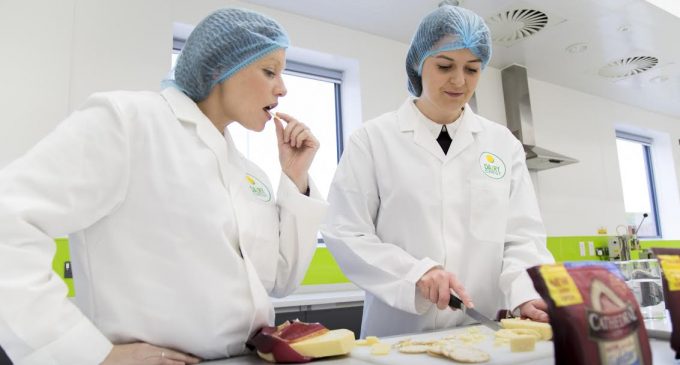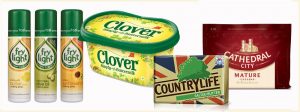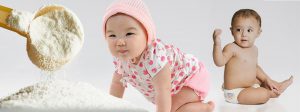Dairy Crest Delivers a Robust Performance

Dairy Crest has reported a 1.3% decrease in revenue to £416.6 million for the year ended 31 March 2017, although revenue in the second half of the year was 3.7% ahead of the same period last year. Despite sales volumes across its four key brands remaining broadly flat, the UK dairy group faced price deflation in the first half which only partially reversed in the second half of the year.
 Dairy Crest’s cheese and whey revenue fell by £8.9 million (3.4%) with decreased sales volumes and prices. Revenue in butters, spreads and oils fell by £1.9 million (1.2%) as price deflation across spreads and butter in the first half of the year more than offset the second half recovery and the strong value and volume growth in Frylight.
Dairy Crest’s cheese and whey revenue fell by £8.9 million (3.4%) with decreased sales volumes and prices. Revenue in butters, spreads and oils fell by £1.9 million (1.2%) as price deflation across spreads and butter in the first half of the year more than offset the second half recovery and the strong value and volume growth in Frylight.
Overall Dairy Crest’s product group profit (before interest, acquired intangible amortisation and exceptional items) increased by £2.3 million to £68.3 million and the margin increased to 16.4% from 15.6% in 2016.
The cheese and functional ingredients product group profits increased by 17.6% and the margin increased to 16.8% (2016: 13.8%). This is despite lower revenue which reflected lower selling prices during the year. The profit and margin benefited from the reduction in milk costs in 2015/16 that resulted in lower cost of sales in 2016/17 due to the 12 month average cheese maturation cycle.
Butters, spreads and oils product group profits at £25.5 million (2016: £29.6 million) were £4.1 million lower than 2016 with profit margins of 16.9% (2016: 19.4%) reflecting the competitive butters and spreads market and significantly higher butter input costs.
Adjusted profit before tax (before exceptional items, amortisation of acquired intangibles and pension interest) increased by 5.0% to £60.6 million. This is management’s key group profit measure because it excludes exceptional items and therefore gives a better indication of underlying performance. Reported profit before tax of £40.3 million represents a £5.1 million (11.2%) decrease from 2016 predominantly due to the increase in exceptional items.
Dairy Crest has implemented significant changes during the last two years to become a much leaner, more focused organisation that makes predominantly branded and high value added products.
Mark Allen, chief executive of Dairy Crest, comments: “In the first full year since the transformational sale of our Dairies business, we have delivered a robust performance in a tough market. Our industry leading margins are the result of our focus on driving long-term value through brand building, innovation, investment in a world class supply chain and strong cost control.”
He continues: “Our key brands are performing well. Cathedral City remains the nation’s favourite cheese and following its brand refresh at the start of the year, the good progress and momentum we have seen in the last six months has continued in the new financial year. Our overall spreads market share has increased, and Frylight had another outstanding year with sales growing 19%. This is well ahead of the market. The ongoing investment that we are putting behind our brands gives me confidence that we can grow market share.”
 Dairy Crest has also continued to make good progress in its demineralised whey operations at Davidstow and is now hitting its targeted level of infant formula grade.
Dairy Crest has also continued to make good progress in its demineralised whey operations at Davidstow and is now hitting its targeted level of infant formula grade.
“Developing our sales of demineralised whey and GOS into the high-margin global infant formula market will be a key priority this year. At the same time we will continue our research into other potential animal and human applications for GOS,” explains Mark Allen. “Looking forward, I am excited about the future for Dairy Crest. The business is well positioned to deliver profitable, sustainable growth and stronger cash generation. This underpins our commitment to growing our dividends and reducing debt.”


































